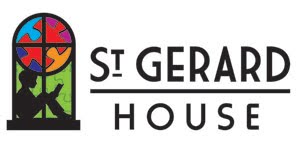When Laura Gaddy-Dull’s son, Ethan, was first diagnosed with autism, the advice she kept hearing over and over from professionals was to “put him in school.” So, Gaddy-Dull enrolled her son in a special needs preschool program but she was not satisfied with her son’s progress.
“The problem was,” according to Gaddy-Dull, “that the teacher had so many students. She just couldn’t devote the one on one time that would have helped Ethan thrive socially, which is where he struggled the most.”
Ethan’s impairment with social skills is not uncommon. According to Cliff Cowan, a behavioral therapist at the St. Gerard House, “One of the major diagnostic criteria for autism is an impairment in social interation.” While social problems are common amongst children with autism, typically developing children can also struggle with social skills. According to Candy Lawson, PhD, “For some children, social skills can be the hardest subject to pass in school. Social skills play a very important role in a child's emotional health and well-being. Without friendships, school can be a very unhappy, lonely place that a child might want to avoid.”
Despite the well-known importance of social skills, it can be difficult to incorporate direct social instruction in the already busy day of a public school classroom, as noted by Gaddy-Dull. Recognizing the importance of learning social skills for her son, Gaddy-Dull searched for resources and found the St. Gerard House’s Connect Program. According to Cowan, the Connect program uses the principles of Applied Behavioral Analysis and a social thinking curriculum to target fundamentals of social skills such as identifying expected and unexpected behaviors, behavioral triggers, small versus big problems and differing perspectives.
Using small group instruction, facilitated play and highly trained therapists, the Connect Program strives to teach children with or without a developmental disability, vital social skills while having fun. There can be physical play, arts and crafts, story time and games incorporated into a session. By combining research-based strategies for teaching social skills and play, Connect endeavors to prepare its students to function in society while having a fun.
According to Gaddy-Dull, her son has received the social skills instruction that he needs to thrive in public school from Connect. “Ethan needs support socially and Connect has given him the boost and independence he needs. He’s learning how to take turns, start conversations. He even made a good friend in Connect that he has had play dates with outside of the program”
She is not the only satisfied client. “I really like it! I miss it when I’m not taking the classes,” said Ethan. “The stories and the puppets are my favorite part.”
Alicia Ballard-Westbrook

No comments:
Post a Comment